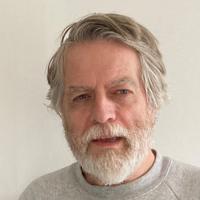A Voice for the Voiceless
Thursday 5th October 2023, 5:00 PM - 7:00 PM (London Time)
This course is about helping the voiceless to find their voices. It offers strategies and tools for working with those who consider themselves ‘tone-deaf’ or ‘non-singers’.
But who are ‘the voiceless’? Only around 3% of the population fall into the category of ‘amusia’ while over 17% consider themselves ‘tone-deaf’; and this does not account for ‘non-singers’, a wider group sometimes described as ‘tuneless’.
The course will fall roughly into two halves. In the first half, after an introduction with a few thoughts about what we might mean by ‘voiceless’, William will briefly explore the history of singing and the study of singing, especially the various movements to encourage community singing over the years. Why indeed do we sing and why has there long been an emphasis on the health-giving and social benefits of singing? There is also a long history of how voice was studied. William will consider what the purpose is of training a voice, when it is considered such a natural human attribute. However, why on earth would a ‘tone-deaf’ person want to learn to sing? Some of the scientific research into ‘tone-deafness’ will be described and William will recount some of his own case histories.
The 19th century novel ‘Trilby’ tells how a tone-deaf woman was transformed into a great singer by a somewhat sinister man called Svengali. But ‘tone-deafness’ is a complex syndrome with different manifestations, many causes, and a multiplicity of ways of helping a person overcome it – without resorting to hypnosis! In the second half of the course, we will examine strategies for teaching non-singers through different sorts of choirs, small-group classes and private lessons. William will also explain several of the techniques he has used to work with individuals.
At the halfway stage, there will be a short break during which participants can record any questions they might have for later. They are also invited to consider a questionnaire that William used in his ‘Tone Deaf? No Way!’ class which is intended to add more information as well as being part of a study too. After a summary, the evening will end with a ten-minute Q&A. Participants will be offered a selective reading list and some other supporting documents.
William Leigh Knight
William Leigh Knight (AGSM, FISM, ProfDoc) is a singer and voice teacher who trained at the Guildhall School of Music and Drama (GSMD). His performances have ranged from song recitals and chamber opera to mediaeval church music drama.

Attend this course for as little as £22 as part of the Voice Professional Training CPD Award Scheme.
Learn MoreSorry, this is an archived short course...
We have plenty of upcoming short courses coming soon. See details of some of them below or look at the full list of short courses.

Wednesday 4th March 2026
1:00 PM - 2:00 PM
Wednesday 11th March 2026
1:00 PM - 2:00 PM
Wednesday 18th March 2026
1:00 PM - 2:00 PM
Wednesday 25th March 2026
1:00 PM - 2:00 PM
Wednesday 1st April 2026
1:00 PM - 2:00 PM
Wednesday 8th April 2026
1:00 PM - 2:00 PM
(London Time)
Learn to Coach RP and SSBE – a Certificate in Accent Coaching

Louisa Morgan
This six-week course is an opportunity to learn about both Received Pronunciation and Standard Southern British English. Rather than a course in learning how to speak RP/SSBE (there are many brilliant available courses for this already), this course is about learning how to coach it.

Thursday 5th March 2026
1:00 PM - 2:30 PM
Thursday 12th March 2026
1:00 PM - 2:30 PM
(London Time)
Acting Emotion: Perspectives from the Masters

Louisa Morgan
Stanislavski said, “our artistic emotions are, at first, as shy as wild animals and they hide in the depths of our souls.” Michael Chekhov said, our bodies should be like a “sensitive membrane, a kind of receiver and conveyor of the subtlest images, feelings, emotions and will impulses.” And Meisner said we should be “living truthfully under imaginary circumstances.” Join Louisa Morgan in this 2-part course as she explores a range of well-known acting practitioners to investigate what they believed (or believe) about emotion and how they approached it in their work. She'll compare their work to see where they align and where they diverge.


Tuesday 10th March 2026
3:00 PM - 5:00 PM
(London Time)
Living truthfully in the present moment: An introduction to the Meisner Technique!

Abigail Sugden
Sanford Meisner believed that acting is living truthfully under imaginary circumstances. Rooted in behavioural aspects of acting practice, the Meisner Technique is often associated with encouraging actors to live truthfully in the present moment. Aimed at those working within the field of acting, this 2-hour session with Abigail Sugden will focus on the work of Sanford Meisner, introducing the core principles of his technique and discussing the possible benefits to performers.
